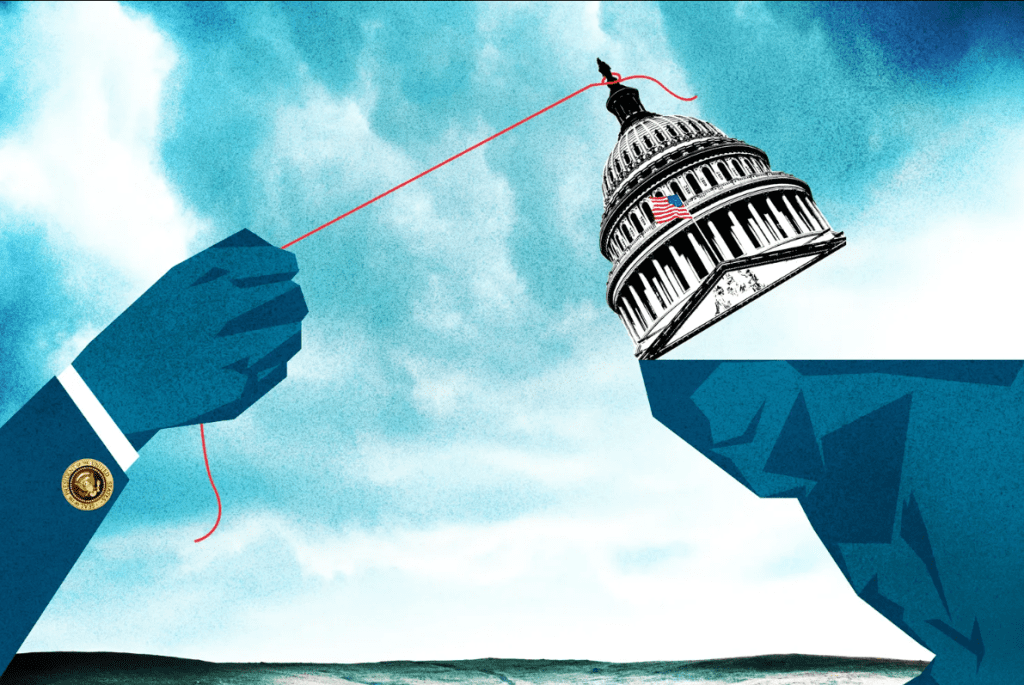Waging War: The Constitutional Tug of War Between Congress and the Presidency
The power to wage war is one of the most significant prerogatives of the national government, and in the United States, it is subject to stringent constitutional checks and balances. This post explores the division of war powers between the U.S. Congress and the President, a topic of paramount importance given its implications for both national security and international relations.
Understanding the Constitutional Framework
Congress’s Role in War Powers
The U.S. Constitution grants Congress the sole authority to declare war. This power serves as a critical check on the President’s capacity to initiate military engagements, ensuring that the potential for armed conflict undergoes rigorous legislative scrutiny. Historically, this arrangement has aimed to prevent unilateral military decisions that could lead the country into unnecessary or prolonged wars.
Presidential Powers as Commander-in-Chief
While Congress holds the power to declare war, the President, as commander-in-chief, possesses the authority to direct the military. This role is pivotal during times of national emergencies or attacks on the U.S., where rapid response is necessary. The balance between these roles is designed to ensure that while the President can respond to immediate threats, long-term military engagements require congressional approval.
The War Powers Resolution of 1973
The War Powers Resolution was enacted in response to growing concerns over the executive branch’s escalating involvement in military conflicts without direct congressional authorization. Key provisions of the resolution include:
- Notification Requirement: The President must notify Congress within 48 hours of committing armed forces to military action.
- Limitation on Engagement: Armed forces cannot remain deployed without a declaration of war or specific authorization for more than 60 days, with a further 30-day withdrawal period.
Despite these provisions, the effectiveness of the War Powers Resolution has been a subject of ongoing debate. Presidents often justify military action on grounds of national security, sometimes without seeking or obtaining explicit congressional consent, leading to controversies over the actual strength of the resolution.
Historical Context and Precedents
Major Conflicts and Presidential Actions
From the Korean War to the recent conflicts in Iraq and Afghanistan, U.S. Presidents have often engaged in military actions that pushed the boundaries of their constitutional authority. For instance, the Vietnam War was escalated by successive presidents under the pretext of the Gulf of Tonkin Resolution, which Congress passed without a formal declaration of war.
These instances have sparked significant debates about the balance of power between the legislative and executive branches, raising questions about the scope of presidential powers in the absence of explicit congressional authorization.
Analyzing the Effectiveness of Checks and Balances
Evaluating the effectiveness of the War Powers Resolution and other checks on presidential military power involves considering both legal frameworks and their practical enforcement. While the resolution aims to restrict the President’s ability to engage in unauthorized military conflicts, its actual impact has been mixed, largely due to the complexities of global politics and national security imperatives.
Conclusion: The Ongoing Debate
The division of war powers between Congress and the President remains a contentious issue in American politics. While the constitutional provisions and the War Powers Resolution aim to balance these powers, the interpretation and application of these rules continue to evolve. As the U.S. faces new international challenges, the debate over the proper roles of Congress and the President in waging war is likely to persist, underscoring the importance of maintaining robust checks and balances in a democracy.
Related Terms
- Congressional Authority: Powers granted to Congress, including funding government operations and declaring war.
- Executive Orders: Directives from the President that manage operations of the federal government.
- Judicial Review: The power of the courts to interpret laws and their constitutionality, sometimes affecting how war powers are understood.







